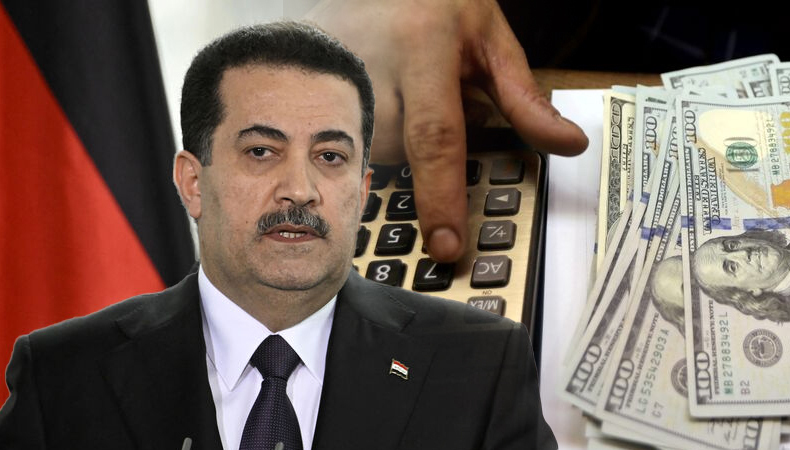Banking reforms show fake dollar transactions: Iraqi PM

As a result of the new limits and a decline in the value of the local currency, Iraq’s leader claimed on Tuesday that fraudulent dollar transactions made from his nation had been discovered by new banking laws.
Iraq has been working to guarantee that its financial system complies with the global electronic transfer standard known as SWIFT in recent months.
Prime Minister Mohammed Shia Al-Sudani praised the new measures as “a real reform of the financial sector” but blasted “falsified bills, money pouring out fraudulently,”, particularly as foreign exchange payments for imports.
In an interview with state television, he asserted, “That is a fact.” Greater transparency, combating money laundering, and aiding in the enforcement of international sanctions, such as those against Iran and Russia, were all intended benefits of the SWIFT system’s implementation.
According to a Sudani consultant, starting mid-November, payments between Iraqi banks and their dollar reserves held in the US must be made electronically.
Read | Saudi Arabia calls for revival of Israel-Palestinian peace talks
Following that, the US Federal Reserve will review the requests and, if it deems them suspect, block them.
The council said that the Fed has thus far turned down 80% of transfer requests due to issues with the intended beneficiaries of the monies.
According to Sudani, “we were selling $200 million or $300 million a day before the adoption of the new regulations.
What were we importing in a single day for $300 million, he questioned, adding, “Now, the central bank provides $30 million, $40 million, and $50 million.”
“Products were being imported into Iraq at prices that were absurd. It was obvious that the goal was to remove foreign monies from Iraq, the man stated. “This has to end.”
Money may have been transported to the independent Kurdistan region of Iraq “and from there to adjacent nations,” Sudani claimed, without elaborating on whether he meant war-torn Syria, Turkiye, or Iran.
According to a deal between the US financial authorities and the central bank of Iraq, he said the new regulations had been prepared for two years and regretted past attempts to implement them.
Iraq is struggling to recover from four decades of war and upheaval and is beset by widespread corruption.
The government sets the official exchange rate at 1,470 dinars to the dollar, but in unofficial markets on Tuesday, the currency was trading at approximately 1,680 due to a shortage of dollars.
Occasional protests by Iraqis concerned about their purchasing power have been provoked by the decline.
A group flying to Washington on February 7 to talk about the new mechanism and the changing exchange rate will include the new central bank governor and foreign minister Fuad Hussein.




